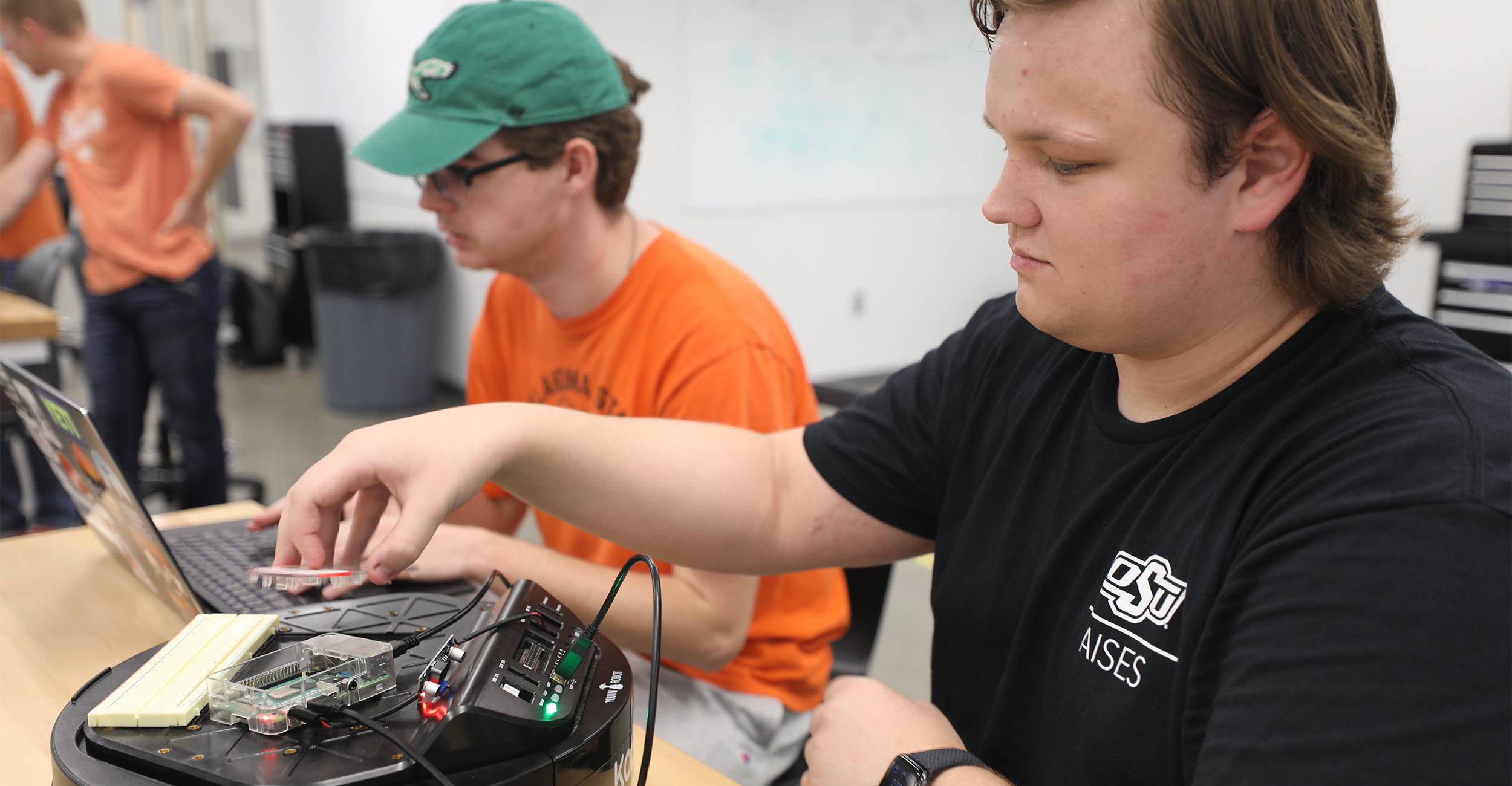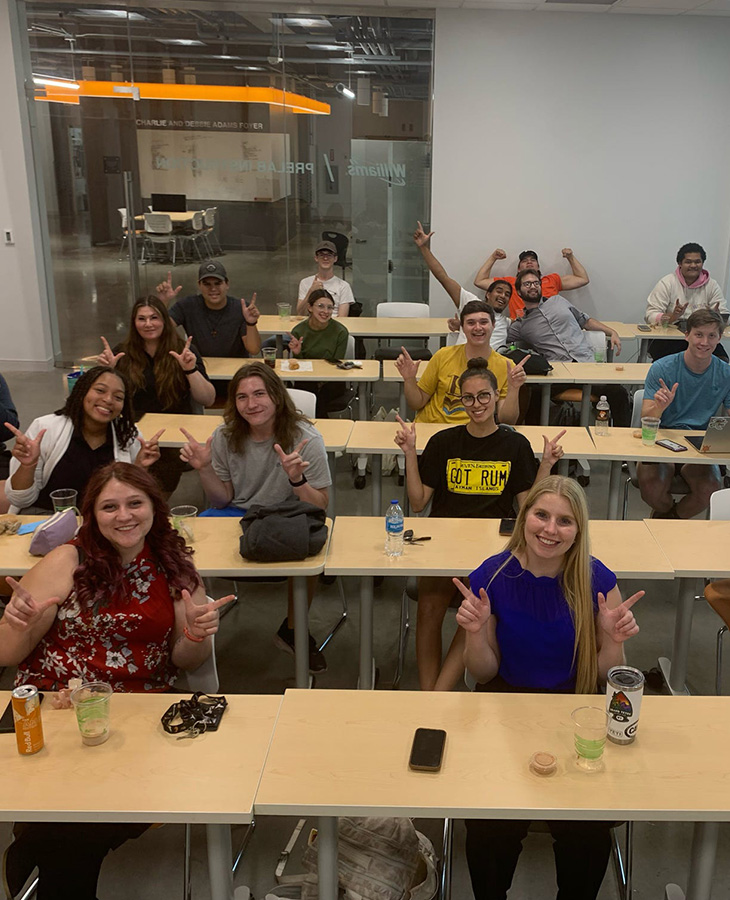
AISES supports engineering students in professional, academic development
Thursday, June 6, 2024
Media Contact: Tanner Holubar | Communications Specialist | 405-744-2065 | tanner.holubar@okstate.edu
The American Indian Science and Engineering Society seeks to increase the representation of American Indians and Alaskan Natives in engineering, science and technology.
Oklahoma State University's AISES chapter has existed for more than 15 years, said chapter advisor Brenda Morales.
Morales said AISES, a professional organization with chapters nationwide, does a great job connecting underrepresented engineering students.
“They not only identify as engineers or scientists, but they also have that network connection nationwide for things that are going to assist them to enhance their academic journey,” Morales said.
There were around 20 students who attended AISES meetings regularly during the previous school year, and the group has grown its presence on campus over the past few years.

She said AISES is invaluable for the individual success of OSU engineering students and a support group for its members. Members of underrepresented groups have overcome obstacles others might not fully understand, and AISES can support those students.
Morales said she tells students of underrepresented groups that the engineering field is a workforce where many people won’t look like them and tells them it is OK to be in that situation.
“How do we prepare ourselves to have those conversations about anything, about how we view a building, or building in a certain area or community? So, there's different conversations that are had, and not just about engineering itself, but how engineering is affected or affects them on a day-to-day basis,” Morales said. “But I think the biggest thing is, we showcase the beauty of OSU, and in all its facets, the diversity that we have.”
Mason Adams, a spring 2024 CEAT graduate, was president of the OSU chapter of AISES
during the 2023-24 school year.
He said the past year was great for increasing memberships as roles and procedures
were formalized. This led to planning meetings in a way that allowed AISES to focus
on more defined aspects of the organization.
More events were held on campus, including the Region 4 conference, which Adams said took a lot of planning. More than 100 attended the event, which “turned out very nicely.”
When it comes to helping AISES members feel more comfortable on campus, Adams said he always hoped the organization could be a safe space for members to hang out and meet new people.
"OSU AISES has been so powerful for so many people, and I hope that AISES can continue to do so for the next cohort of students at OSU.”
“I tried to greet everyone as they entered the meeting, and all our officers tried to talk to people and make them feel welcome. We also hosted social events, like gaming nights, to provide a more casual space for people to get to know other Native STEM students on campus,” Adams said.
Adams said his favorite thing about being a member of AISES was being able to attend the yearly conference held in locations around the country, like Palm Springs, California; Spokane, Washington; and Phoenix. He said he got his first internship at one of the national conferences and took a full-time job with the same company after graduating this spring.
As he departs OSU, Adams said he hopes AISES will be able to continue making strong impacts on Native students. He said the organization made a large impact on himself. He never expected to get into leadership, but through his friends in the group, he was supported and encouraged to do so.
“This led to me becoming president down the line, to becoming a student leader at the Center for Sovereign Nations, and to attending the AISES National Conference, where I received my first internship,” Adams said. "OSU AISES has been so powerful for so many people, and I hope that AISES can continue to do so for the next cohort of students at OSU.”
